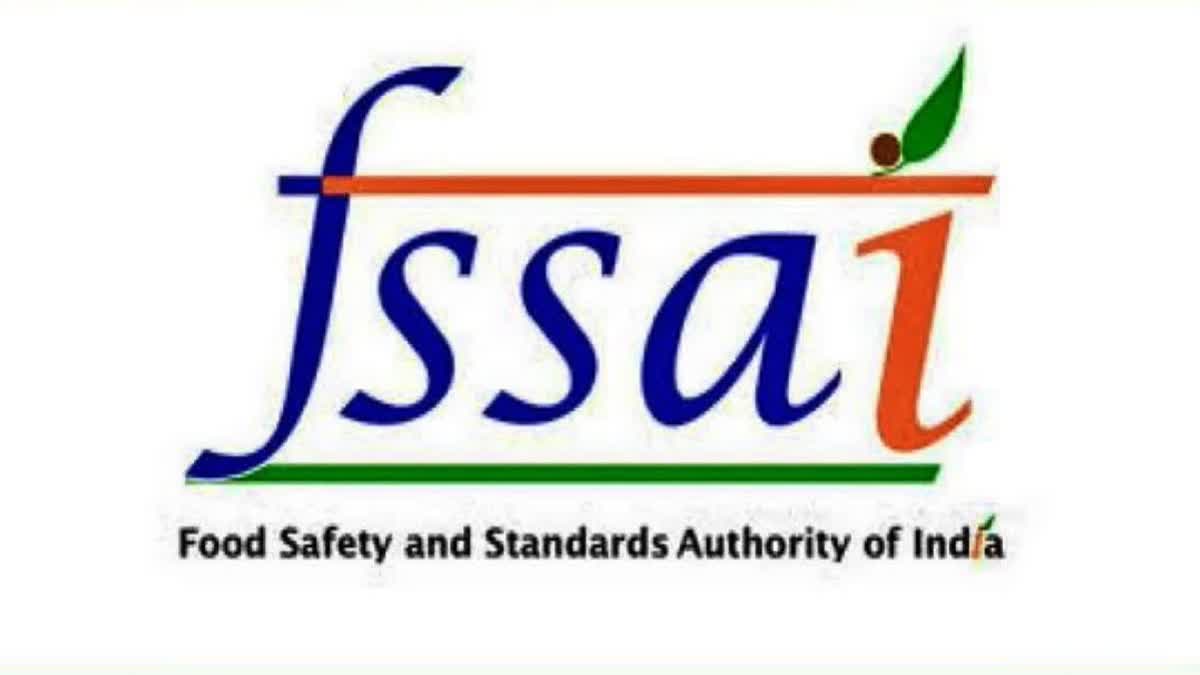New Delhi: Amid controversies over Nestle, MDH Spices and other food items, the health ministry on Monday said that the number of food samples analysed by the Food Safety and Standards Authority of India (FSSAI) during the past few years have grown substantially, from 1,07,829 in 2020-21 to more than 4,51,000 in 2023-24, registering an increase of more than 3 times.
The FSSAI, which has detected 1,05,907 food samples which are non-conforming during the same period, was created for laying down science based standards for articles of food and to regulate their manufacture, storage, distribution, sale and import to ensure availability of safe and wholesome food for human consumption.
According to the statistics, of the total analysed food samples, FSSAI has found 28,347 non-conforming samples in 2020-21. Of the total 1,44,345 samples analysed in 2021-22, the authority has found 32,934 non-conforming food items. The FSSAI also analysed 1,77,511 samples in 2022-23 out of which 44,626 have been found non-conforming.
As many as 4,51, 296 food items have been taken for analyses in 2023-24. “The results of the food samples are yet to be collected,” the ministry said.
Strategy To Ensure Food Standards:
The food authority lays down science based standards for articles of foods with the support of its subsidiary bodies, namely, Scientific Panels (SPs) and the Scientific Committee (SC) established under Section 13 and 14, respectively, of the FSS Act, and other Working Groups that may be set up by the Scientific Committee from time to time. So far, FSSAI has developed over 700 standards of food products and also reviewed and amended the standards required.
Food safety standard:
According to the Ministry, the process of development of a science based standard is driven by the principle of food safety and assessment of risks associated therein. A standard could be of general nature that applies to all product categories, and are often referred to as horizontal Standard. Such standards include food additives provisions; limits of contaminants, toxins, antibiotic residues, pesticide residues etc.; microbiological criteria; packaging and labelling requirements etc. On the other hand, standards that are specific to a product or a product category are referred to as vertical standards. The vertical standards mainly prescribe identity and quality characteristics of a food product/product category.
FSSAI’s Scientific Panels:
FSSAI has constituted 21 scientific panels which comprise subject experts from universities, research institutes & other reputed Government organizations like CSIR, ICAR, ICMR, IITR, NIFTEM, IIT, CFTRI etc. Scientific panel carried out the risk assessment and took into consideration available scientific evidence and developed a draft standard which was then forwarded for endorsement by the Scientific Committee. The Scientific Committee comprises 21 scientific panels and six independent experts. The standard is reviewed and validated by the SC before being finally approved by the Food Authority. The draft of a standard/regulation approved by the Food Authority is then notified in the Gazette of India with the due approval of the ministry, for inviting comments by stakeholders & WTO members. The regulations are then finalized after appropriately addressing the stakeholder comments and subsequently endorsed by the Scientific Committee and Food Authority. Further notified after legal vetting by the Department of Legislative Affairs and subsequent approval by the MoHFW for implementation as the final standard.
Food Testing Laboratories:
FSSAI undertakes regulatory testing and monitoring, surveillance of various food products through a chain of food testing laboratories operating in both government and private sector. The laboratories are notified as primary and referral laboratories. Presently, 239 primary food testing laboratories along with 261 mobile labs, 22 referral laboratories and 12 reference laboratories are operating in the country. The number of laboratories in India is much higher than several other countries including Singapore, Germany, UK, France etc.
Punishment According to the FSSAI Act:
Samples analyzed as substandard and misbranded are penalized under Section 50 to 54 of FSS Act, 2006 where the maximum penalty can be levied up to Rs 5 Lakhs for substandard food, up to Rs 3 Lakhs for misbranded food and up to Rs 10 Lakhs for misleading advertisements. In case of samples analyzed as unsafe will lead to the food businesses being prosecuted under Section 59 of FSS Act, 2006 where a three-month jail term with penalty up to Rs 3 Lakhs can be levied, where failure does not result in injury. In case of injuries caused due to consumption of unsafe food (under sec 59, from 59(ii) to sec 59 (iv), there is punishment with imprisonment from one year to six year, accompanied with fine that may range from 3 lakhs to 5 lakhs, as applicable weighing the gravity of injury. Further, where such failure or contravention result in death, the defaulter Food Business Operators (FBO) may be convicted with imprisonment for a term which shall not be less than seven years but which may extend to imprisonment for life and also with fine which shall not be less than Rs 10 lakh.
90 percent of the Food Business Operators fall under the jurisdiction of the State Governments. Enforcement of the provisions of the Act to a large extent rests with the State Governments. Adjudicating officers involved in all the violations mentioned above are under the State Government Authority. Criminal cases are filed at District Level Courts.
PAN-India Surveillance:
A number of pan-India surveys on various food products are carried out by FSSAI in order to assess the compliance status of implemented regulations. In 2024-2025, surveillance is planned on food items like fruit and vegetables, salmonella in fish products, spice and culinary herbs, fortified rice and milk and milk products.
Read More:
- FSSAI Asks Food Safety Commissioners To Collect MDH And Everest Samples
- Scientific Committee Of FSSAI Examining Nestlé Issue: Officials
- Kejriwal Accuses ED Of Being "Petty", "Politicising" His Food Before Court
- Tamil Nadu: Madurai Meenakshi Thirukalyanam Celebrated With Gaeity And Grandeur
- Ghazipur Landfill Fire: As Delhi Residents Battle To Breathe, BJP-AAP Slugfest On Over 'Negligence'


